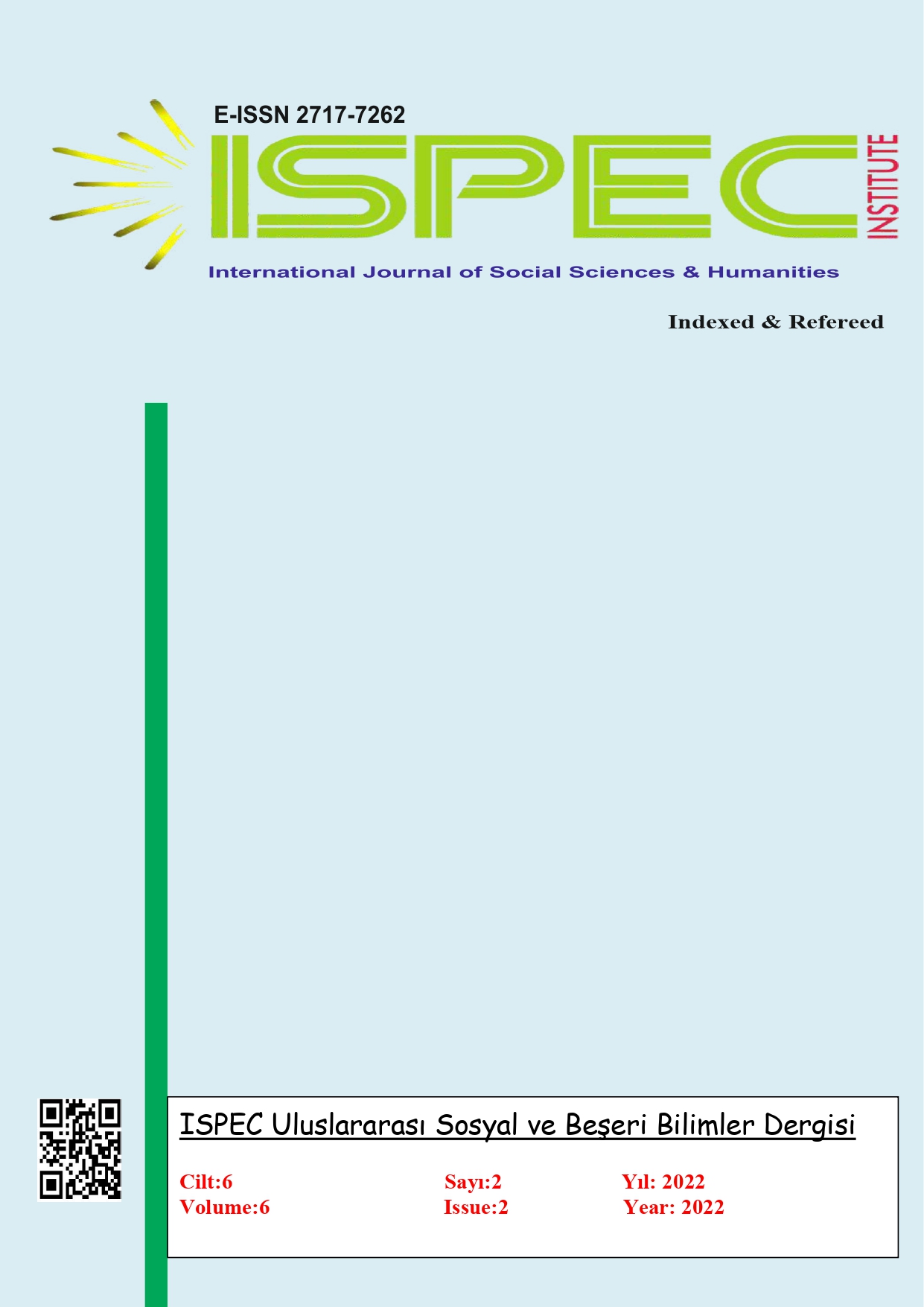A Qualitative Research on Students' Perspective on Distance Nursing Education
DOI:
https://doi.org/10.5281/zenodo.7443702Keywords:
Distance Education, Nursing, Nursing Education, Nursing StudentAbstract
This study was conducted to determine the problems related to distance education in applied education such as nursing. The population of the research consisted of 30 students studying at a state university nursing department. 63.3% of the students who participated in the study stated the distance education were insufficient. 70% of the students stated that the videos are not sufficient/do not reflect the reality. 80% of the students stated that they had limited opportunities in internet and computer access, 83.3% of the students stated that the exams and homework given do not reflect the actual evaluation, instead, the application parts of the lessons should be repeated when face-to-face education is started. In order to reduce the identified problems related to distance education, universities should constantly update their distance education infrastructure systems for theory courses and practical courses should be repeated in an accelerated manner in the following term.
References
Brooks, S. K., Smith, LE, Webster, RK, Weston, D., Woodl, L., Hall, I., & Rubin, GJ (2020). The impact of unplanned school closure on children's social contact: fast evidence review. Euro Surveilliance, 25(13). http://doi.org/10.2807/1560- 7917.ES.2020.25.13.2000188
Budzinski, J. W., Farrell, B., Pluye, P., Grad, RM, Repchinsky, C., Jovaisas, B., & Johnson- Lafleur, J. (2012). Moment online knowledge resource and questionnaires as a continuing pharmacy education tool to document reflective learning. American journal of pharmaceuticals education, 76(5).
Cervera-Gasch, Á. González-Chordá, VM, & Mena-Tudela, D. (2020). COVID-19: Are Spanish medicine and nursing students prepared? Nurse Education Today, 92, 104473.
Domenico, L. Di, Pullano, G., Coletti, P., Hens, N., & Colizza, V. (2020). Expected impact of school closure and telework to mitigate COVID-19 epidemic in France. Accessed on 16.04.2020 Accessed from: https://www.epicxlab.com/uploads/9/6/9/4/9694133/inserm_covid-19-school-closure-frenchregions_20200313.pdf
Eby, G. (2013). Distance Education (UZE) environment design: software engineering life cycle approach, Kültür Ajans.
Eren, D. C., Korkmaz, M., Yıldırım, Ö. Ö. & Avcı, İ. A. (2021). Attitudes and Satisfaction Levels of Nursing Students Towards Distance Education During The Covid-19 Pandemic Process. Anatolian Journal of Nursing and Health Sciences, 24 (2), 246-254.
Ismail, N. A., Lee, JX, Azman, AHA, & Ng, JY (2020). Reflection of connectivism in medical education and learning motivation 4 during COVID-19.
Ilaslan, N., & Demiray, A. (2021). Nursing Education During the Coronavirus 2019 Pandemic Process: Uncertainties and Suggestions. Dokuz Eylul University Faculty of Nursing Electronic Journal, 14 (2), 171-176.
Keskin, M., & Ozer D. (2020). Evaluation of students' feedback on web-based distance education during the COVID-19 process. Journal of Izmir Katip Celebi University Faculty of Health Sciences, 5 (2), 59-67.
Kurduncu, M., & Aylin, KURT (2020). Problems of nursing students about distance education during the COVID -19 pandemic. Journal of Eurasian Social and Economic Studies, 7 (5), 66-77.
Lovric, R., Farčić, N., Mikšić, Š. & Včev, A. (2020). Study during the COVID-19 pandemic: A qualitative inductive content analysis of nursing students ' perceptions and experiences. Education Sciences, 10 (7), 188.
Mucuk, S., Ceyhan, Ö. & Kartin, PT (2021). Distance nursing education during the COVID-19 pandemic: National experience. Journal of Izmir Katip Celebi University Faculty of Health Sciences, 6 (1), 33-36.
Nielsen, D. S., & Dieperink, KB (2020). Cultural perspectives and nurses reactions on the corona pandemic _ _ view from Denmark _ Journal of transcultural Nursing, 31 (4), 333-336.
Nursing Education Association. Public Important Announcement. (2020) http://www.hemed.org.tr/index.php?option=com_cont ent&task = view&id =704&Itemid=183
Owusu-Fordjour, C., Koomson, C., & Hanson, D. (2020). The impact of Covid-19 on learning - the perspective of the Ghanaian student. European Journal of Education Studies, 7(3), 88–101. http://doi.org/10.5281/zenodo.3753586
Sahu, P. (2020). Close of universities due to coronavirus disease 2019 (COVID-19): Impact on education and mental health of students and academic staff. Cureus, 2019(4), 4–9. http://doi.org/10.7759/cureus.7541
Taş, A. S., & Dalcalı BK (2021). Professional Motivation in Nursing Students during the Covid-19 Pandemic Period. Acıbadem University Journal of Health Sciences, 12 (2).
Turkish Nurses Association. Use of Personal Protective Equipment and Hand Hygiene. (2020). http://www.thder.org.tr/covid19-hemsire-egitim-rehberi-ve-bakim-algoritmalari-ve-kisisel-koruyucuekipman-utilimi-ve-hand-hygiene _
TÜBA (Turkish Academy of Sciences), (2020). COVID-19 Pandemic Evaluation Report, Turkish Academy of Sciences Publications, Report: 34, 159s
Türnüklü, A. (2000). A qualitative research technique that can be used effectively in educational research: Interview. Educational administration in theory and practice, 24 (24), 543-559.
Vatan F., Avdal EU, Yağcan H, Sanli D. (2020). COVID-19 pandemic and nursing education association activities. Koç University Journal of Education and Research in Nursing, 17 (4), 369-373.
Viner , R.M. , Russell , SJ, Croker , H., Packer , J., Ward , J., Stansfield , C., … Booy , R. (2020). School closure and management practices during coronavirus outbreaks including COVID-19: a rapid systematically review. The Lancet Child & Adolescent Health, 0(0), 1–8. http://doi.org/10.1016/S2352-4642(20)30095-X
Wang, C., Cheng, Z., Yue, X.-G., & McAleer, M. (2020). Risk Management of COVID-19 by universities in China. Journal of Risk and Financial Management, 13(2), 36.
Yıldırım, A., & Simsek, H. (2011). Qualitative research methods in the social sciences.
Yök (2022). Press briefing.
https://www.yok.gov.tr/Sayfalar/Haberler/2020/YKS%20Deferment%20Bas%C4%B1n%20A%C3%A7%C4%B1klamas%C4%B1.aspx Access Date: 28.02.2022
Downloads
Published
How to Cite
Issue
Section
License
Copyright (c) 2022 ISPEC International Journal of Social Sciences & Humanities

This work is licensed under a Creative Commons Attribution-NonCommercial-NoDerivatives 4.0 International License.






